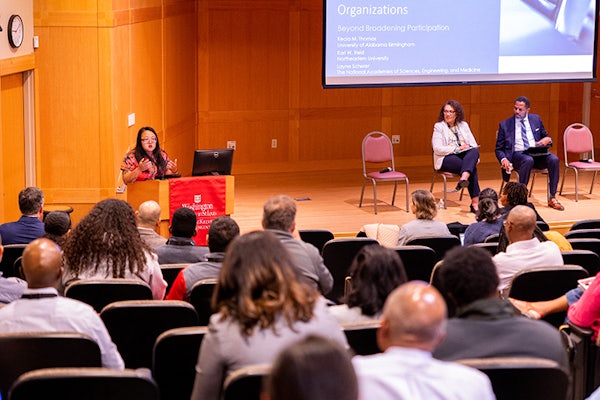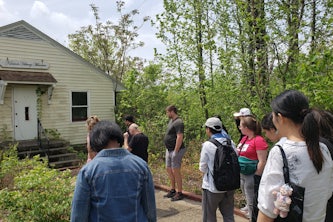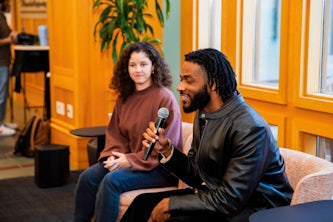Workshop highlights path forward to advance anti-racism in STEMM
More than 130 WashU participants shared their experiences and goals, highlighting longstanding commitments and novel approaches

Washington University recently hosted a campus event in partnership with the National Academies of Science, Engineering, and Medicine to advance anti-racism in science, technology, engineering, mathematics and medicine (STEMM).
Anti-racism connects with longstanding efforts, nationwide and on our campuses, to move forward with our work related to equity, diversity and inclusion (EDI). According to the Academies’ report from this year, anti-racist institutions recognize the historical and current systemic barriers faced by minoritized racial and ethnic groups. To counter these challenges, anti-racist systems support people from minoritized groups; promote accessible and supportive cultures; and develop institutional structure to bolster equitable teams, departments, schools and our university overall.
Our collaborative workshop revealed great strengths and opportunities in our teaching, research, service and administration. More than 130 WashU participants shared their experiences and goals, highlighting both our longstanding commitments and novel approaches. Often our EDI efforts remain separated by our individual schools, departments, offices and units. The workshop unified the voices of students finding strength in their communities; faculty and chairs seeking practices and principles to foster equity in their departments; EDI initiative leaders providing programs and resources to build belonging; and vice provosts analyzing what works and how to scale effectively.
Read the full story here.




